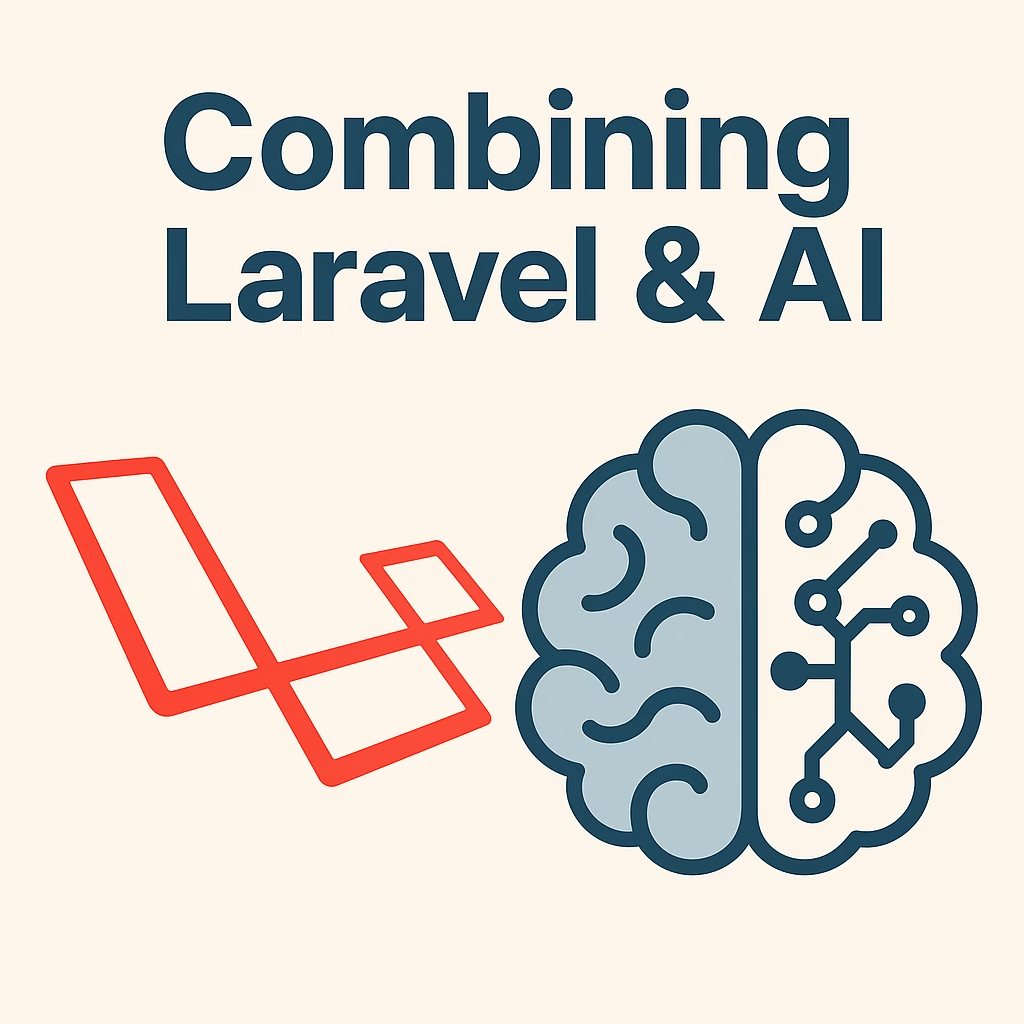Artificial Intelligence isn’t just a buzzword anymore – it’s everywhere. From chatbots answering your customer questions at midnight, to tools that summarize emails so you don’t have to, AI is quietly (and not so quietly) reshaping the way we build software. And if you’re a Laravel developer, here’s the good news: you don’t have to reinvent the wheel to bring AI in your projects. With the right approach, Laravel can become the perfect framework for AI-powered features. In this post, let’s walk through what it looks like to combine Laravel + AI – and how you can start experimenting with your own custom features.
Why Laravel and AI work well together?
Laravel is already great at handling the boring stuff: routing, authentication, jobs, queues and APIs. That’s exactly what you need when you’re working with AI models, which usually live outside your app (on APIs or external services). Think of Laravel as the conductor, and the AI model as the musician. Laravel sets up the stage, sends the sheet music (your request), and brings everything together into a polished performance.
Real-world use cases
So what kind of features can you actually build? Here are a few ideas:
- Smart search: Imagine users typing natural-language queries (“show me all orders from last week where the total was over $1000”) and AI translating that into a database query.
- Content generation: Auto-generate product description, blog drafts or email templates directly inside your Laravel admin panel.
- Transcription & analysis: Upload an audio file, and Laravel hands it off to an AI model for transcription, then tags the text with topics.
- Personalized recommendations: Use AI to analyze user behavior and suggest products, articles or learning materials.
The point is – AI isn’t just about chatbots. It’s about making your app feel smarter and more human-friendly.
How to connect Laravel with AI
Here’s the general steps:
- Pick your AI Provider
- OpenAI (ChatGPT, Whisper for speech-to-text)
- Cloudflare Workers AI
- DeepInfra or Hugging Face models
- Even self-hosted AI if you want full control
- Set up a Laravel service
Create a dedicated class or service in Laravel to talk to the AI API.
namespace App\Services;
use Illuminate\Support\Facades\Http;
class AiService
{
public function generateText(string $prompt): string
{
$response = Http::withToken(config('services.openai.key'))->post('https://api.openai.com/v1/chat/completions', [
'model' => 'gpt-4o-mini', 'messages' => [
['role' => 'system', 'content' => 'You are a helpful assistant.'],
['role' => 'user', 'content' => $prompt],
],
]);
return $response->json('choices.0.message.content');
}
}
- Use it in your controllers
public function generate(Request $request, AiService $ai)
{
$text = $ai->generateText($request->input('prompt'));
return response()->json(['result' => $text]);
}
And, just like that, you’ve got Laravel + AI talking to each other.
Things to take into consideration
- Costs add up: AI APIs ofter charge per request or per token. Cache results where possible.
- Performance matters: Use Laravel’s queues to handle heavy AI tasks in the background
- Be explicit: Give the AI very clear instructions (prompts). Vague requests often lead to vague results.
- Privacy: If you’re handling sensitive data, make sure the AI provider meets your security standards.
Where do we go from here
Start small. Add a single AI-powered feature – a smarter search, a transcription tool or an auto-reply generator. See how your users respond. The beauty of Laravel is that once you’ve done the plumbing, adding more AI -powered features becomes a lot easier. AI won’t replace developers anytime soon, but developers who know how to use AI will definitely replace those who don’t. And Laravel gives you all the tools you need to be on the winning side of that equation.

Leave a Reply